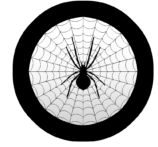The Pride of an African Migrant is a contemporary mental, physical, and political odyssey.
A young man, Massocki Ma Massocki sets out from Cameroon, West Africa, to the paradise that awaits in Europe.
But instead in the United Kingdom he encounters racism, state violence, insecure jobs, and imprisonment in three different detention centres, destitution and begging on the streets, entrapment by drug dealers, and an arson attack.
He journeys from London, to Southend and Liverpool. He meets and tells the stories of other migrants. He meets Sarah Jane, a white Rasta woman who astonishes him by singing Burning Spear’s ’Slavery Days’. She has her own problems but is a lifeline to him.
The Pride of an African Migrant is a personal and graphic account of an extended period spent by a migrant experiencing former Prime Minister Theresa May’s ‘hostile environment’ in all its finery.
At some point, Massocki encounters a new understanding of life, and this is at the core of the book. As well as Zen masters, Massocki also refers to and quotes among others Marcus Garvey, Mfumu Kimbangu, Sékou Touré, Patrice Lumumba, Frantz Fanon, historian Cheik Anta Diop, Ethiopian poet Lemn Cissay, the Cameroonian philosopher Ebénézer Njoh-Mouellé, and singers such as Bob Marley, Youssou N’Dour, and Fela Kuti.
Massocki documents his struggle for his own and other’s freedom and dignity: speeches about migration to students in Liverpool Johm Moore University, to his first class of meditation students, an open letter challenging Cameroonian dictator Paul Biya, his lone protests against the murder of Jimmy Mubenga by the UK Border Regime on a plane at Heathrow Airport, demanding freedom of speech inside Campsfield detention centre (for that he was ‘knocked down by 10 guards’), and against his own deportation at Heathrow Airport (which provoked another violent reaction by guards).
The book is subtitled ‘IRemembrance of Jimmy Mubenga, a Martyr of Globalization, Murdered by the UK Border Regime on a British Airways Flight to Angola ’.

MASSOCKI MA MASSOCKI
The book starts with a letter of condolence and consolation to Jimmy Mubenga’s family.
The letter is titled ‘ Our Hearts Are With You’
There is a very productive tension between the teachings of Zen lightly touched on in this book, the calm of meditation, and the implication of the realization that for Africans the answer is not to chase a dream in Europe, but to stay and challenge and overturn the neo-colonialism of corrupt African leaders and Western financial institutions, military and governments.
There are some superb passages such as that comparing the spending on average of $7000 to get from Cameroon to the UK, with better results obtained from investing the same amount in an African stock exchange, or like the young worker Aisya, staying in the country and with a fraction of that amount of money and building up a successful business.
Massocki writes: ‘The book’s goal is to make Africans aspiring to the European Union of the US be more informed of the issues related to their plans so that they can be better prepared.’ But I believe its more serious and intended aim is spelled out in this passage:
‘My stay in the UK not only allowed me to demystify and destroy the European myth; most importantly, it allowed me to understand that for the young African, fighting for social justice should be imperative. It is the only way to prevent the young African from dying in the desert or drowning in the Mediterranean Sea, experiencing the same humiliation and torture suffered by African migrants in Europe. Either through protest movements for social change, we brave the dangerous streets of our dictatorial and terrorist states, or as cowards, we abdicate and accept death in the Mediterranean Sea or suffer the humiliations and tortures reserved to African migrants in Europe.
This is why since my return from the UK, I have committed myself to fighting—by any means necessary—the Cameroonian dictatorial and terrorist regime of President Paul Biya, a regime responsible for the death of thousands of Cameroonians in the desert and the Mediterranean Sea.
Leaders like Paul Biya are what human rights activist and musician Fela Kuti described as ‘beasts of no nation, animals in human skin, animals that wear a suit and tie’. From this view, Fela thus declared ‘war upon them’.
If leaders like Paul Biya were human beings, they would have known what human rights are. They would have known that humans need food and water, housing, health care and education. Either we leave power in the hands of beasts like Paul Biya and die in the Mediterranean Sea and others suffer the fate of Jimmy Mubenga, or we overthrow these beasts using every means necessary. There is no other way around.’
Migration as a ‘revolt against misery’ is a theme developed from ‘The song of the traveller’ sung by Africans in Ceuta, Spain, who have crossed the Sahara. Such people are described as economic migrants. But as Massocki says:
‘The sea is dreadful, and for people to embark on such a journey, there must be terror in the land. Yet, nobody acknowledges the terror—at least the economic terror those ‘economic migrants’ are running away from. African despots voluntarily keep systemic poverty flowing in the land to control their citizens and stay in power. Through so-called international institutions and multinationals, Western powers financially terrorise African nations, causing deaths to millions of Africans.’
The Pride of an African Migrant is a powerful book. The more I go back to it, the more I see its potential to change minds, those of migrants those of people not forced to migrate. I think its publication is very significant.

Bill MacKeith
—Bill MacKeith, founder–member of Campaign to Close Campsfield and End All Immigration Detention (also involved with the Bail Observation Project (BOP), National Coalition of Anti-Deportation Campaigns (NCADC) / Right to Remain, Migreurop, Barbed Wire Britain, and Detention Forum)
20 September 2019


